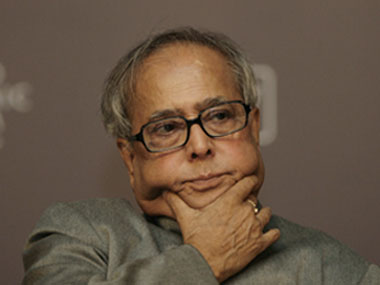New York: Finance Minister Pranab Mukherjee feels no pressure to be comprehensible or explicit, so financial journalists and US officials were left scratching their heads after the finance minister tried to play down concerns over recent tax proposals that have rattled foreign investors. Mukherjee told the US that the “tax changes proposed are not substantive” and would only clarify the current law, said an Indian government statement issued on Friday.
However, the government’s attempt to clear the air fostered even more questions about what exactly it intends to do in the Vodafone case which has become a lightening rod. Vodafone this week took the first step to initiating arbitration proceedings with India, arguing that the proposed retroactive tax on overseas transfers of Indian assets violates legal protections granted to investors under the Bilateral Investment Treaty (BIT) between India and the Netherlands.
[caption id=“attachment_283538” align=“alignleft” width=“380” caption=“Mukherjee told his counterpart that the changes would only re-emphasize tax authorities’ existing powers. Reuters”]  [/caption]
Mukherjee, who met US treasury secretary Timothy Geithner in Washington on Thursday, played down the policy changes, but was ambivalent about India’s intentions regarding the budget legislation which includes several proposals that have caused major anxiety among foreign investors.
According to the statement released after the meeting, Mukherjee told his counterpart that the changes would only re-emphasize tax authorities’ existing powers. Mukherjee said cases more than six years old can’t be revisited under Section 149 of the Income Tax Act.
This appears to contradict the proposed language in the new legislation which seems to empower Indian tax officials to scrutinize deals dating back to 1962.
The finance minister also told Geithner that tax cases that were already “assessed and finalized” as of April 1 can’t be reopened, the statement said. The statement, however, did not clarify which types of transactions it was talking about.
The finance minister then appeared to be digging his heels in. “Indian tax laws are very clear that the companies making capital gains from the assets located in India will have to pay taxes either in the country of their origin or in India. It is not a case of double taxation but ensuring that companies that are liable to pay tax must pay some tax,” said the statement.
If applied retrospectively, Mukherjee’s proposal could force British telecom giant Vodafone to pay $2.2 billion in taxes on a deal it struck offshore to enter India in 2007 through its $11 billion acquisition of the Indian telecom assets of Hong Kong’s Hutchison Whampoa. Vodafone beat back the government’s tax claim with a victory in the Supreme Court in January.
Foreign investors now fear the new law could override that decision, leave them open to paying back taxes for consummated deals, and complicate cross-border mergers. Combined with the mildly sinister sounding GAAR or General Anti Avoidance Rules, that are also included in the Finance Bill, the tax liability for foreign investors could spike.
Foreign companies feel they are becoming targets for a cash-strapped government. The Indian economy’s slowdown to 6.9 percent has sapped tax revenues even as subsidies and populist welfare schemes spur spending, leaving India with the worst budget deficit among emerging markets.


)
)
)
)
)
)
)
)
)



